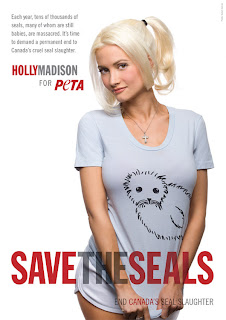Response #20
For as long as I can remember, there has been a 'war' between dogs and cats. As children and even into adulthood, we see movies and television shows where the cats are seen as evil and dogs as the good guys and they always despise each other. I do think it is interesting how cats and dogs are so different even though they sometimes live in the same households. It's also interesting how some people are clearly dog lovers and others prefer the independence of cats. This makes me wonder if it's because our personalities match the ways of one species more than the other or if there are other undiscovered reasons for choosing one domesticated animal over another. In Courtney's blog, she talked about how dogs have been domesticated much longer than cats: 15,000 years compared to 9,500 years. She compares common characteristics of dogs and cats saying dogs are more dependent while cats are independent animals. Cats are able to survive in the wild while dogs do not last as long. She then said it may be because dogs have been domesticated longer but that has not really been a proven answer. She asked, "What makes dogs so different from cats that they need to depend on us, while cats do not?"
For starters, even though they are both domesticated animals, they are different species of animals. Even treating them the same would give the owner two completely different animals and they are verrry different. For instance, dogs come when you call them while cats take their time and do so only if they want to. Dogs provide unconditional love while cats make you work for it and seem to hold grudges. Dogs let owners bathe and brush them but cats will put up a fight. Dogs bark to be heard but cats like to hide and be discrete. The list goes on. There are good reasons why cats and dogs have such distinctive personalities and behaviors which makes dogs dependent and cats the total opposite. The largest reason I see is that they have different social patterns and ways of interacting. Dogs are from packs and the members of their packs or families are critical to them. They see their owners as their packs and look for a leader. Some dogs strive for the leadership role but of course the owner does not let that happen. Carts are not pack animals and don't look for a human leader to follow. However, they aren't solitary animals as some may think. The relationships they form are more based on behavior, treatment, and territorial and survival concerns. If a cat is being treated badly, it won't stick around. However, if a dog is being abused, it will stay with the owner if there was once a connection between them because the owner is still the leader. In the wild, cats do form groups but this is influenced by whether there is enough food to hunt and if they are accepting of other cats around. Cats hunt independently; even pet cats hunt when they already have a supply of food. The ways cats and dogs interact with people and animals are fundamentally different.
Another difference is their physical make up. Cats, being solitary hunters, are physically unique. From the smallest house cat to their wild big cat cousins, they are physically suited as exceptional hunters. They have a good sense of smell and excellent hearing. They do not need humans to supply everything for them and if they do, cats hunt anyways because it is in their nature to be independent. They are flexible, excellent runners and jumpers, with other capabilities that are unmatched by other animals, even dogs. Dogs are best suited for finding prey and they have unbelievable tracking skills. This can be seen in many working dogs that use their tracking abilities for search and rescue, or to detect particular substances such as illegal drugs or explosives. This shows both a remarkable nose and an ability to be trained, along with a desire to please. Typically dogs have exceptional hearing too. Dogs have also been bred by people to have particular traits. Therefore some breeds are particularly good at picking up a scent, others are suited to hunt and retrieve, others are particularly fast runners, and unfortunately some dogs have been bred to fight making them much more aggressive than the average dog. Many dogs are bred mainly to be pets which usually leads to a good even tempered dog. While cats are bred too, it isn’t to the same extent as dogs and cats aren’t typically bred for a particular ability like dogs are, consequently it hasn’t affected the species the same way as dogs. There can be quite a range in personality and demeanor for both cats and dogs, but each has basics elements that are unique to their own species.
My question to you is:
Are you a cat person or a dog lover and what makes you particular to one species over the other? 

